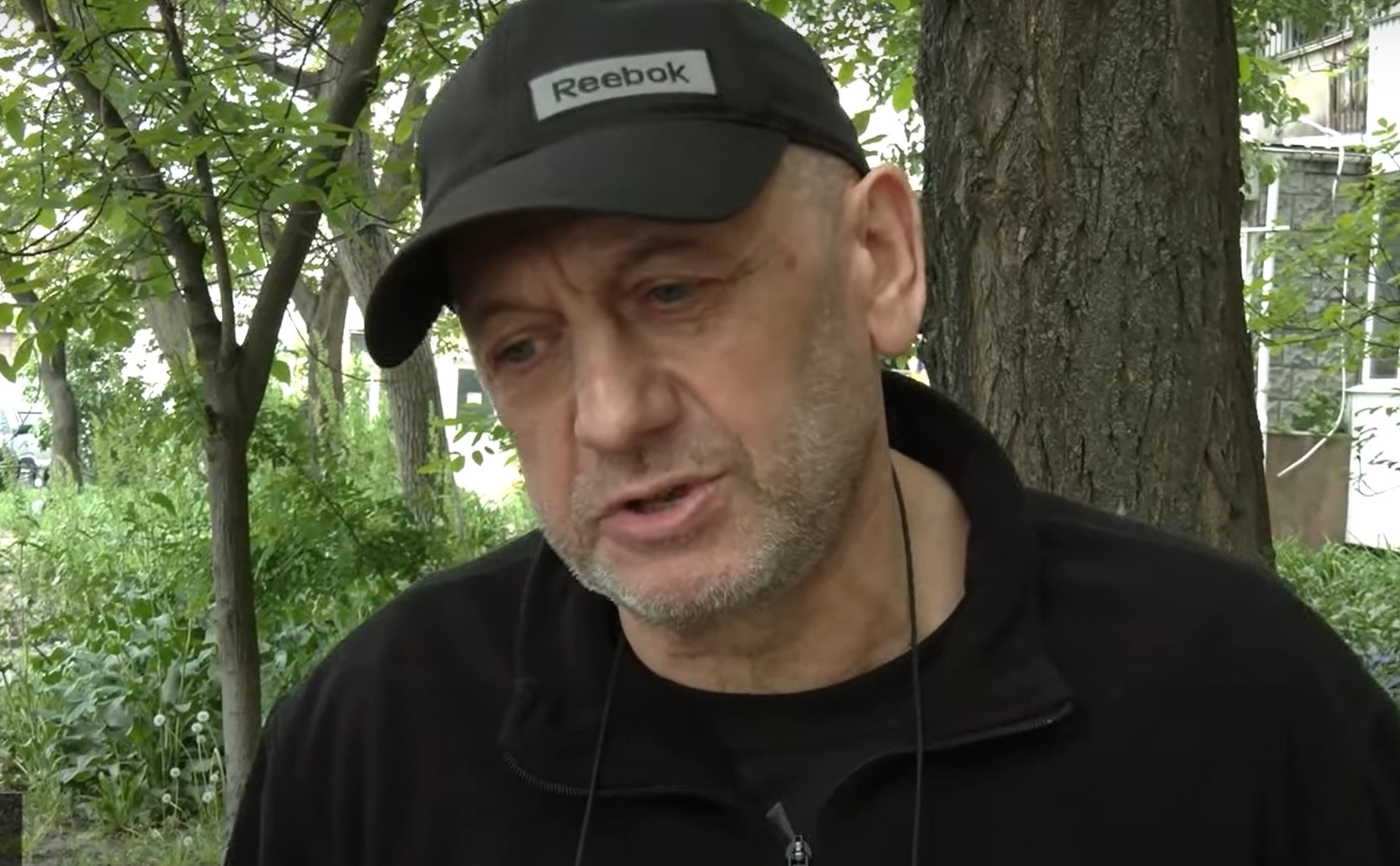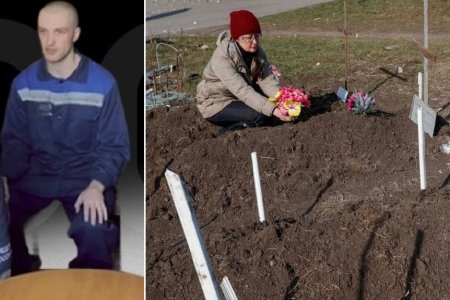
A Ukrainian court has finally released Volodymyr Panasenko after well over 16 years in prison for a crime that nobody ever believed he had committed. This is, at most, a partial victory since the conviction has not yet been revoked, but at least Panasenko, who is 64 and in ill health is at liberty.
On 23 May 2023 the Vinnytsia Court of Appeal released Panasenko from his life sentence on the grounds of serious illness. Ten doctors had provided independent opinions, certifying that Panasenko is suffering from an illness that falls within the List of illnesses covered by a special order of Ukraine’s Ministries of Justice and Health. All of this should have been clear-cut, yet Panasenko’s daughter Tetiana had first presented those same opinions to the Vinnytsia Municipal Court in 2021. That court took 228 days to ‘consider’ the application, rather than the legally stipulated ten days, and rejected it. It was only at the appeal level against this decision, that Judges Yevhen Nahorniak; Anatoliy Kryvosheia and Anton Rupak acted in defence of Volodymyr Panasenko’s right to medical treatment and to life; and ordered his release. Their ruling on 23 May was final, and Volodymyr Ivanovych is already home. Before thanking all those who helped to bring about his release, first and foremost his family, Panasenko stressed that he had always affirmed his innocence and continued to do so.
Ukrainian human rights groups had, from the outset, warned of an evident miscarriage of justice, and Ukraine’s first Human Rights Ombudsperson Nina Karpachova first publicly expressed concern back in 2009, as did Ukraine’s first President, Leonid Kravchuk,. The current Ombudsperson Dmytro Lubinets was also reportedly active in seeking Panasenko’s release, with his and Karpachova’s position also supported by the European Prison Litigation Network.
Justice has been served, but only in part, since Volodymyr Panasenko should never have been arrested and the problems the 64-year-old is now suffering are directly linked to the sixteen and a half years he spent imprisoned for a crime he had not committed. Those genuinely responsible for the car bomb on 26 October 2006 under a car belonging to Lviv City Councillor Roman Fedyshyn and the resulting death of a 14-year-old schoolgirl, Marika Kutsinda, have never been held to answer.
There were never any grounds for arresting Panasenko, and the suspicion has always been that a scapegoat was needed, with those who should have come under scrutiny having too much power.
The charges against Panasenko were based on the testimony of Oleksandr Rudy, a man who was suspected of being the go-between and arrested while undergoing treatment for alcoholism in a psychiatric clinic. Rudy signed four different ‘confessions’, until the ‘investigators’ were satisfied. Although he retracted his ‘testimony’ in court, and later even wrote a statement saying that he had given false testimony against Panasenko under pressure and threats from the ‘investigator’, that testimony was used to convict Panasenko and result in a life sentence.
Despite all of this being publicly reported by Ukrainian NGOs, Roman Sharko, who played a direct role in falsifying evidence, was appointed to a high post in the Prosecutor General’s Office, while judge Stanislav Holubytsky was able to become a Supreme Court judge.
Full victory will require Ukraine’s legislators passing vital legislation to prevent the miscarriages of justice that resulted in Panasenko’s 16.5 years of torment. This is particularly urgent given that there are around 100 other cases where there are compelling grounds for believing that the men were convicted of crimes they did not commit, or where the punishment seems disproportionate to the crime.
It was back on 12 March 2019 that the European Court of Human Rights issued its first judgement on Ukraine’s systems of life sentences which allow no scope for release or judicial review (unless new evidence comes to light). In the case of Petukhov v. Ukraine, the Court held unanimously that there had been a violation of Article 3 (the prohibition of torture) specifically with respect to the lack of any prospect for a reduction in a life sentence. It still took two and a half years for Ukraine’s Constitutional Court to find this situation unconstitutional, with this obliging Ukraine’s Verkhovna Rada to bring two articles of the Criminal Code into keeping with its judgement. Two bills adopted on 18 October 2022 and, unfortunately, signed into force by President Volodymyr Zelensky, were supposed to rectify the situation, but did not. Bill No. 4049 envisaged changing a life sentence to one of 15-20 years, if a person had already served no less than 15 years. This effectively resulted in a life prisoner still being imprisoned for no less than 30 years before having any chance of release (more details here).
The other problem was and remains that very many convictions passed before procedural guarantees were introduced to the Criminal Procedure Code in 2012 arouse very serious doubts. Sergei Tkach, a serial killer, was able to carry out his killings over a period of 25 years because at least 10 other men had been tortured into ‘confessing’ to his crimes. Those miscarriages came to light only because Tkach was, finally, caught and confessed. There are many life prisoners currently imprisoned whose convictions may well have been based on ‘confessions’ or false testimony extracted through torture.
The last possibility for judicial review of such cases was removed in 2011, when the then President Viktor Yanukovych seriously reduced the powers of Ukraine’s Supreme Court. Many of the powers then taken away have been reinstated, but not the Court’s right to review cases under exceptional proceedings. This refers to cases where there is believed to have been violations of material and procedural law, through the fabricating of evidence, etc. Since the changes brought by Euromaidan, there have been repeated attempts to rectify the situation. All have run up against opposition, with this probably fuelled by corrupt law enforcement officials, judges and others who fear that such reviews would result in questions demanded from those responsible for falsifying evidence, using torture or otherwise allowing miscarriages of justice.
In March 2023, the European Court of Human Rights found Ukraine in violation of Article 3 of the European Convention (the prohibition of torture) over its failure to properly investigate allegations that Mykola Slyvotskyy was tortured into ‘confessing’ to two murders. Mykola has already spent 20 years of a life sentence imprisoned for crimes he has always denied committing.
Ukraine is fighting against an aggressor state for its existence and its chosen path as a democratic and law-based country. Russia has abducted and imprisoned a huge number of Crimean Tatar and other Ukrainian political prisoners, and regularly uses horrific forms of torture to obtain ‘confessions’ and propaganda videos. In 2023, we should not be reporting on the use in Ukraine of such appalling methods, and Ukrainian life prisoners should not have to turn to the Court in Strasbourg, but should receive a real prospect for justice here in Ukraine.
Press the links for more details about the following life prisoners whose convictions have elicited very serious doubts. Mykola Slyvotskyy (about the ECHR judgement here ); Maxim Orlov; Yaroslav Mysiak



